Why Job Burnout Is Dangerous, and How We Can Deal With It
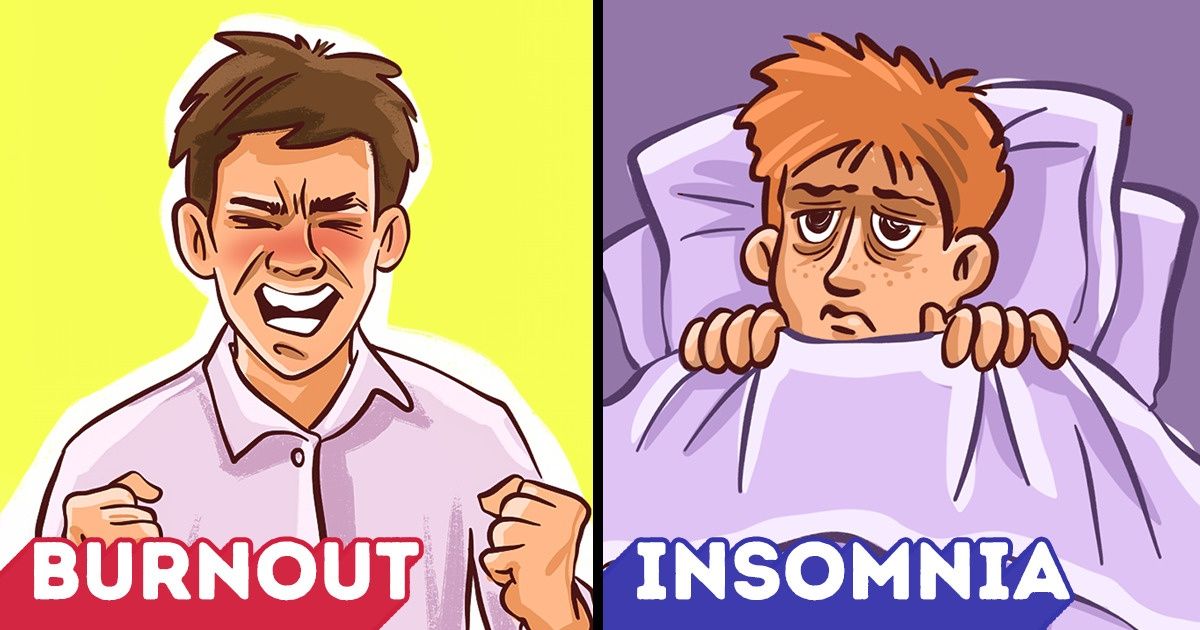
Emotional burnout is a reaction to prolonged stress. It is characterized by exhaustion. People’s productivity drops. If you don’t take the necessary measures, it might have a negative impact on your physical and psychological health.
5-Minute Crafts wants to draw your attention to this: if you are experiencing some or all of the symptoms of emotional burnout, it might have nothing to do with your job. To understand the true reasons, it’s better to see a therapist.
What burnout is
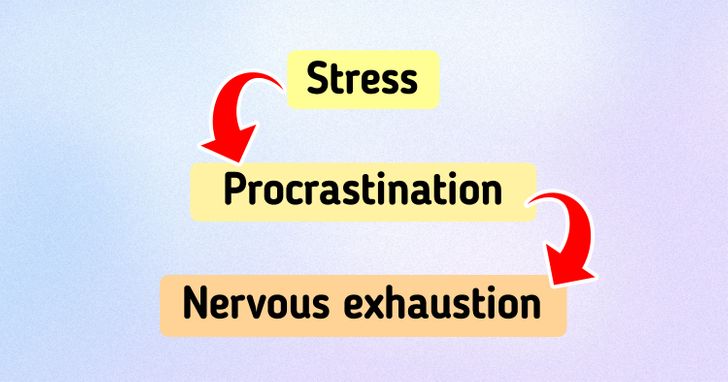
Job burnout is not a medical diagnosis but a state of physical or emotional exhaustion caused by prolonged stress. Whatever the reason, it is important to take your health very seriously and not ignore the psychological discomfort. Try answering these questions honestly:
- Have you become cynical at work?
- Do you often criticize yourself and your colleagues?
- Do you take on a lot of tasks and have no energy to do them?
- Do you feel irritated by your colleagues or clients?
- Do you lack energy?
- Do you find it hard to focus?
- Do you not feel pleased with your work?
- Are you disappointed by your work?
- Do you sleep badly?
If most of the answers are yes, you might have a burnout. Talk to a therapist because these symptoms might have to do with other psychological problems.
Signs and symptoms
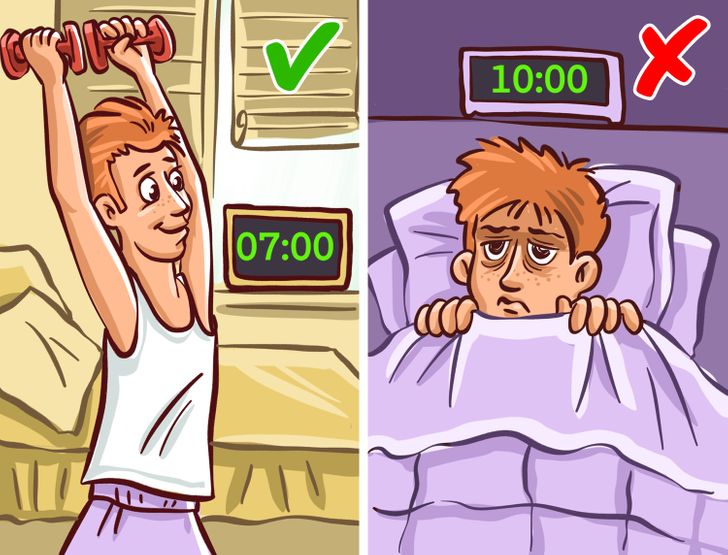
- You distance yourself from anything that has to do with your job. You are cynical to your colleagues and your field, you devalue your achievements, and lose the point of doing the job.
- You have physical symptoms: Burnouts might be accompanied by insomnia, increased heartbeat, digestive problems, dizziness, and headache (all of these symptoms have to be analyzed).
- Emotional exhaustion: Chronic tiredness, fear of the future, irritation. This might lead to serious conflicts at work and at home.
- Low productivity: Even though you spend a lot of time working, chronic stress doesn’t let you do your job as productively as before. The projects are dropped and the list of things you have to do is endless.
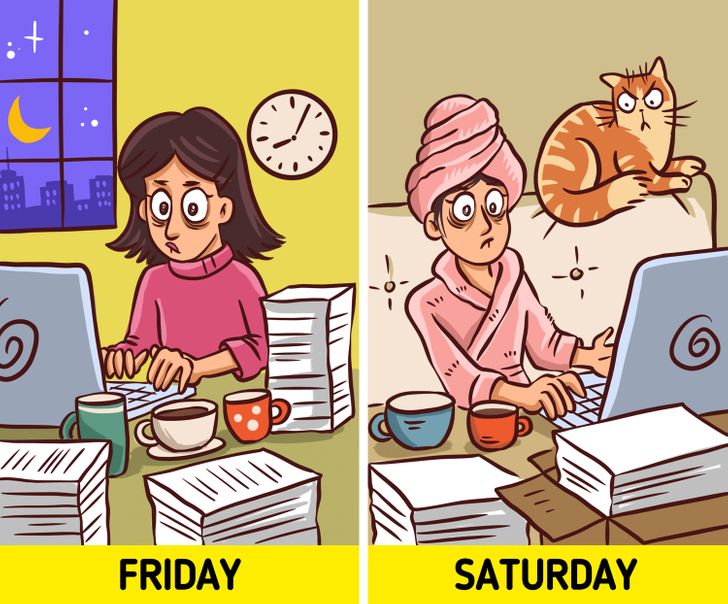
- Unfair employee treatment. You see that your boss is biased towards you, there’s favoritism in your company, and bad corporate policy caused distrust. As a result, the psychological connection that makes your job important is broken.
- Inadequate workload. When you have too many tasks, it might make your time less productive and undermine your professional confidence. When your job takes a lot of time and effort, you have no power to meet your friends and family.
- You don’t understand your role. When you don’t know what your boss wants from you, it makes you scared.
- No feedback and support from your boss. If your boss is inattentive, incompetent, and rude, you’ll have to defend yourself rather than actually do your job.
How to deal with burnout
1. Make sure it is actually burnout.
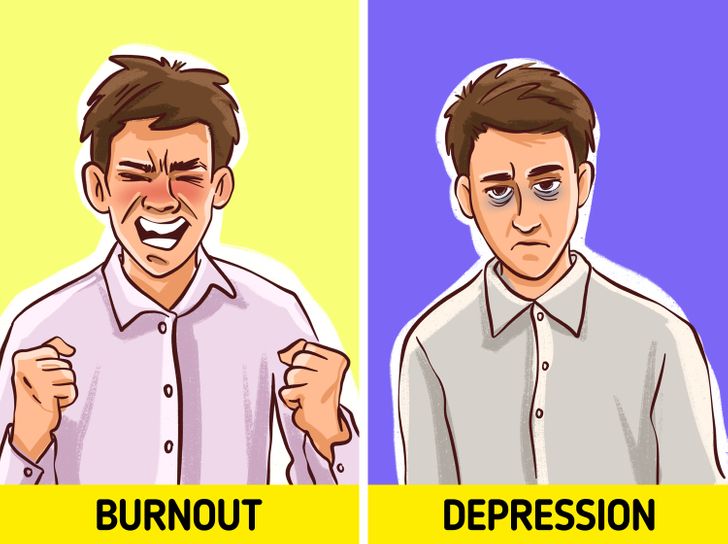
What’s the difference between burnout and depression?
Some symptoms that are typical for burnout can also be present in people with depression:
- extreme exhaustion
- depressed state
- low productivity
Because the symptoms are similar but the treatments are different, it is important to see a psychologist for help. For example, if you send someone with burnout on vacation, it will help them, but if you tell a depressed person to take some time off, their condition might get even worse because depressed people have to get professional and medical help.
Also, an emotional and aggressive reaction to the surroundings is normal for a burnout. But when a person is depressed, their negative feelings and thoughts are targeted more at themselves, not only their job.
Other symptoms of depression are:
- low self-esteem and apathy
- hopelessness
These things are not typical for burnout because most problems are connected with the job.
Conclusion: people with burnout don’t always have depression. But burnout might increase the risk of depression. So, before doing anything, you should find out what exactly is happening.
2. Take care of your physical health.

3. Don’t become reserved.
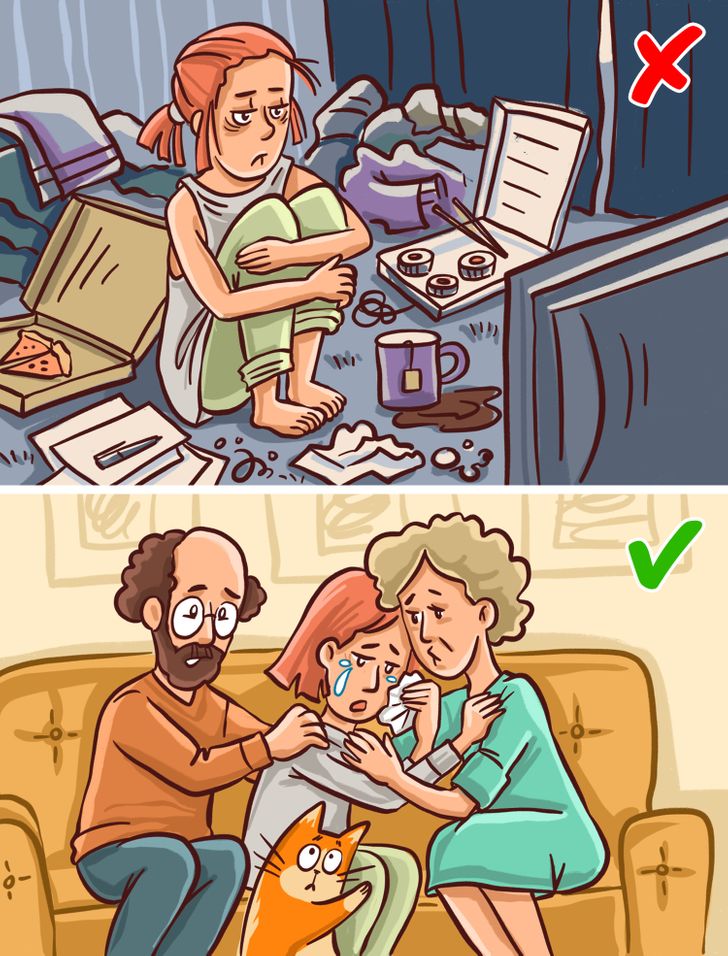
Tell people that care about you about what’s happening to you: your family, friends, colleagues. If you feel that you have nobody to talk to, find a community.
There’s another good exercise: write a letter to the person that’s making your condition worse, like your boss, client, or colleague. Write down everything you feel about them and then destroy the letter. You can burn it, or throw it away but don’t send it.
4. Limit the time you spend on your phone.
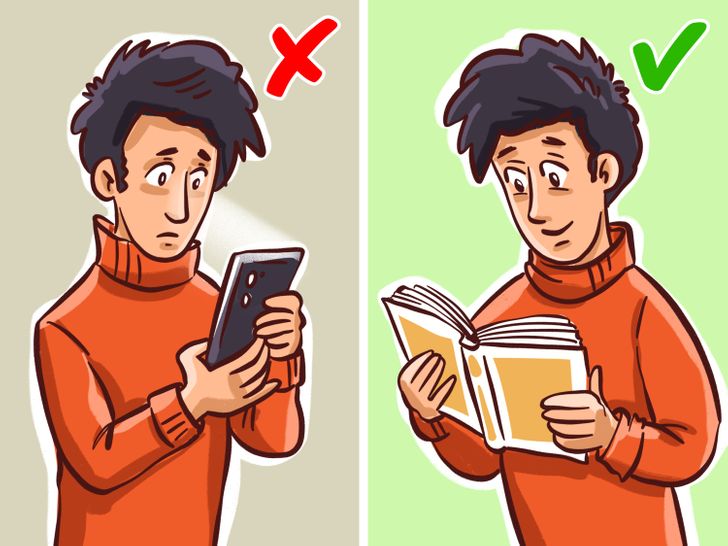
Ron Friedman, the author of the book, The Best Place to Work: The Art and Science of Creating an Extraordinary Workplace, suggests limiting the use of smartphones in your free time. Try to put away your smartphone when you come home or turn it off after 10 pm. Scientists found that using a phone a lot increases the risk of burnout.
5. Find a hobby.

Find something you find interesting. Drawing, chess, choir, or cooking, the most important thing is that it should give you pleasure. Lying on the couch and watching movies is great but more complex tasks will give you more energy.
6. Go on vacation or take a day off.
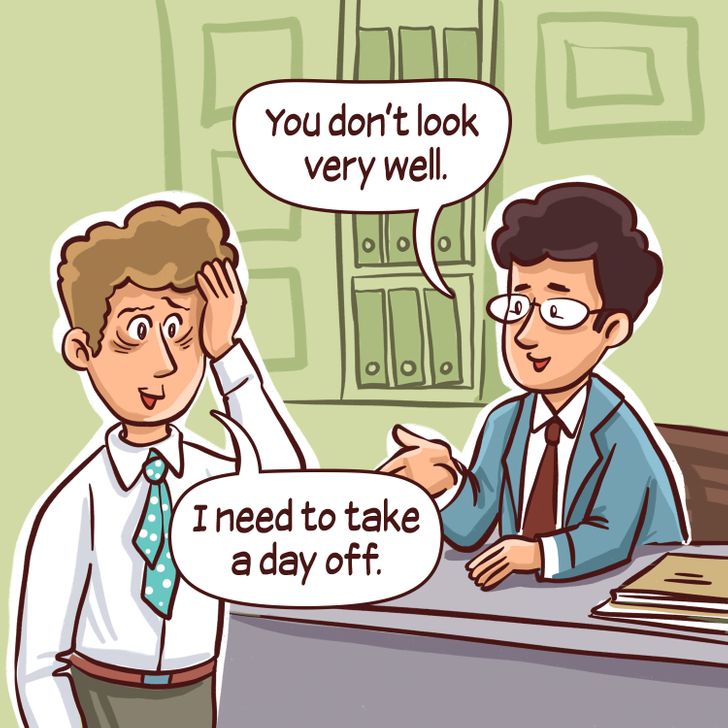
Try leaving your workplace for some time. A vacation can really help you restore some power. If you can’t take a long vacation, take at least a week off.
But sometimes, the only option is leaving your job forever. But before making this important step, make sure you’ve done everything you could to improve the situation.